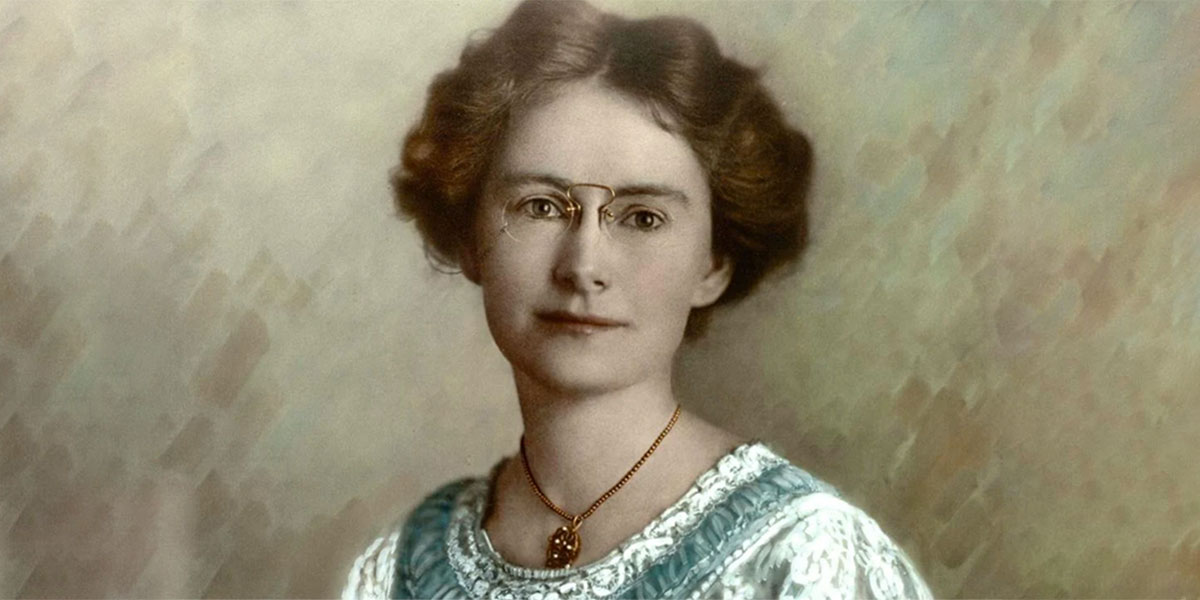Dorothy Scarborough: Early journalism prof, trailblazing author, and Baylor Bear

Students walking between Old Main and Burleson Hall daily pass through a circular brick area known as Folmar Pavilion, which contains memorials to several Baylor legends of the past.
Among them is Dr. Dorothy Scarborough (BA 1896, MA 1899), a remarkable woman who, despite the headwinds women faced a century ago, blazed trails in education, journalism, folklore and more, and sparked conversations from Waco to New York City and beyond.
Born in 1878 in East Texas, young Dorothy’s family eventually moved to Waco so that their children could attend Baylor. Dorothy did just that, receiving both her bachelor’s and master’s degrees in English. At Baylor, she honed interests that she would advance throughout her life, from folklore to music to early feminist writings.
Her talent and determination would eventually take her around the world — but first, she invested nearly a decade as a professor at Baylor. Notably, she taught Baylor’s initial journalism courses, the first such classes taught in the Southwest. Scarborough would go on to spend a year in residence at Oxford, despite the fact that the institution did not award degrees to women at that time. From there, she returned to the United States and distinguished herself in the Ivy League, earning a Ph.D. at Columbia and going on to teach there with an emphasis on creative writing.
Scarborough excelled in the worlds of education and literature with, essentially, dual careers at a very high level. She conducted research on folklore and Black folk songs which were widely published, and wrote poems, short stories and folk songs as well. But perhaps her greatest influence came as a novelist. Her novels often focused on a topic she understood well — the plight of women in Texas and other locations around the nation — and one of them sparked conversation and controversy across the nation.
In her last novel, The Wind, a woman is driven insane by the constant winds of Sweetwater. The wind was both literal and metaphorical, and her descriptions of the conditions in West Texas through the eyes of a woman were upsetting to many readers. The book created a furor in Texas, with many assuming the author could not have come from Texas. Today, however, the book is considered a classic that was ahead of its time.
Although she spent much of her adult life in New York City, she remained connected to Waco. Scarborough’s papers are part of Baylor’s Texas Collection, and Waco ultimately became her final resting place; she is buried less than a mile from campus at Oakwood Cemetery.
Sic ’em, Dorothy Scarborough!

